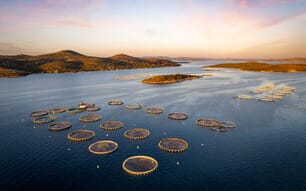A virus that is wreaking havoc with Chilean fish farms means higher prices for salmon farmers in British Columbia (BC), according to Vancouver Sun.
"Prices are up 10 to 15 per cent over the past six months because of the lack of product in the marketplace," Mary Ellen Walling, executive director of the BC Salmon Farmers Association, said in an interview.
She said: "It's good for the BC industry because we've got good, solid prices moving forward. It helps with new equipment and capital outlays, [and] provides stability for the workforce."
However, Ms Walling added that unlike Norway, BC is missing an opportunity to expand into the US market because of provincial constraints on growth.
"There's a significant lack of Chilean product in the US market. It's a great opportunity [for BC salmon farmers] but we can't take advantage of it. BC is home to a range of anti-salmon-farming groups. [Their] campaign has delayed opportunities for the industry to expand."
Global supply of farmed salmon is estimated to slump 10.3 per cent to 1.3 million metric tons this year after an outbreak of the infectious salmon anaemia virus at Chilean farms, according to industry consultant, Kontali Analyse AS.
Vancouver Sun reports that Norwegian-based Marine Harvest ASA, the world's largest salmon farmer, expects supply to fall short of demand as Chile's output will take as long as six years to return to levels seen before a virus ravaged its fish farms.
"It will take long for Chile to come back to volumes they used to have," chief executive officer Aase Aulie Michelet, said at the company's headquarters in Oslo. "We will be undersupplied for a while."
Salmon export prices from Norway, the biggest supplier ahead of Chile and the UK, climbed 13 per cent this year on a growing world shortage.
The company is sending more Norwegian salmon to the US, where it set up a processing plant in Miami and will open a plant in Los Angeles to take advantage of the Chilean shortfall.
Similar outbreaks in the 1970s and 1990s also hurt the industry.
Ms Walling said BC's salmon farming industry, which is largely owned by Norwegian-based companies, accounts for roughly five per cent of the world's production and is worth $800 million. She said 82,000 metric tons of farmed salmon are produced in BC each year. There are four main producers in the province: Marine Harvest, Mainstream, Grieg Seafoods and Creative Salmon. More than 90 per cent of BC's farmed salmon is exported to the US, concludes the Vancouver Sun report.
ISA in Chile Boosts Salmon Prices in Canada
BRITISH COLUMBIA, CANADA - Salmon prices are rising as the result of infectious salmon anaemia (ISA) hitting supplies from Chile.



